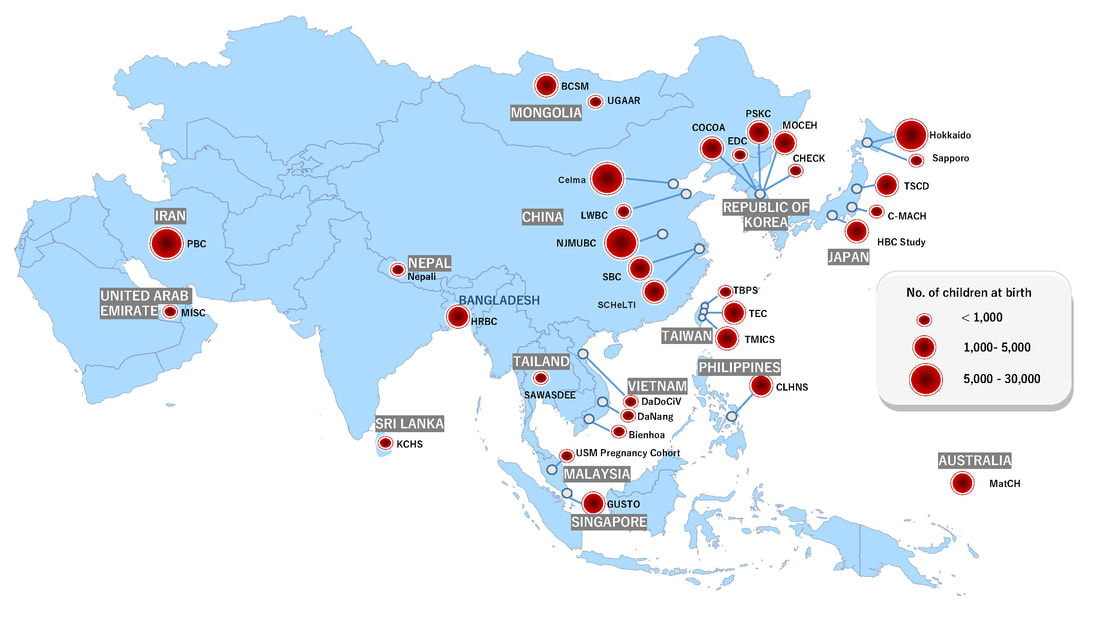About BiCCA (Birth Cohort Consortium in Asia)
BiCCA (Birth Cohort Consortium of Asia) is the working group for the coordination of birth cohort in Asia. Through an enlarged set of data, extended diversity of participants and of environmental exposure levels, this international cooperation will provides a further deeper insight into child environmental health, especially the regional concern in Asia.
Children’s environmental health in Asia
Children’s environmental health is an issue both of global and regional importance. The environmental hazards, life style and genetic susceptibility vary in different regions and races. The burden of environmental related disease is unevenly distributed. In undeveloped countries, traditional environmental hazards as unsafe water, contaminated food and myriad of toxic chemicals are major threats to children. Nevertheless, air pollution, radiation, persistent organic compounds and tobacco smoke catch more attention in industrialized countries. However, the common environmental threats are emerging as the effects of rapid globalization, transboundary chemical transport and unsustainable consumption.
Studies in Asia are necessary for exploring the regional hazards and developing prevention strategy. International cooperation provides information and technology exchange. Comparison of the exposure level and genetic variation in different countries will enhance understanding of the pathogenesis of environmental hazards. Moreover, the knowledge derived from harmonizing the preexisting cohorts should clarify the future needs for environmental health research or public health priorities.
Children’s environmental health in Asia
Children’s environmental health is an issue both of global and regional importance. The environmental hazards, life style and genetic susceptibility vary in different regions and races. The burden of environmental related disease is unevenly distributed. In undeveloped countries, traditional environmental hazards as unsafe water, contaminated food and myriad of toxic chemicals are major threats to children. Nevertheless, air pollution, radiation, persistent organic compounds and tobacco smoke catch more attention in industrialized countries. However, the common environmental threats are emerging as the effects of rapid globalization, transboundary chemical transport and unsustainable consumption.
Studies in Asia are necessary for exploring the regional hazards and developing prevention strategy. International cooperation provides information and technology exchange. Comparison of the exposure level and genetic variation in different countries will enhance understanding of the pathogenesis of environmental hazards. Moreover, the knowledge derived from harmonizing the preexisting cohorts should clarify the future needs for environmental health research or public health priorities.
Aim of BiCCA (Birth Cohort Consortium in Asia)
- To facilitate exchange of knowledge and collaboration between cohorts and researchers.
- Exploration of the future need for children’s environmental health research.
Bylaw of BiCCA (Birth Cohort Consortium in Asia)
| bylaws_of_bicca_draft_vol1_20180712.pdf | |
| File Size: | 490 kb |
| File Type: | |

